Pledges to use more recycled materials are increasingly falling short as the public grows more concerned about the global waste problem and people seek out solutions to lighten their footprints. While many of those solutions still need to scale, a growing number of brands are looking to pave the way toward a circular economy in which nothing becomes waste. From reusable and dissolvable packaging to giving secondhand goods a new life, read on for some of the top circular economy solutions that caught our eyes in 2021.
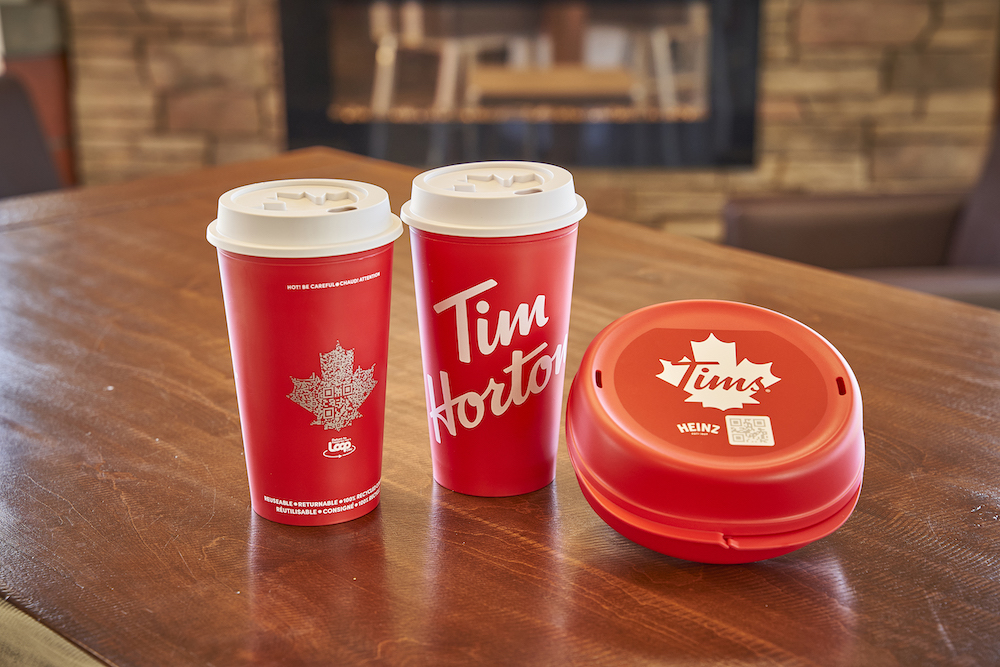
Tim Hortons tests reusable packaging with help from Loop and Tupperware
Tim Hortons gave reusable a try in 2021 with help from the container masters at Tupperware and the reusable packaging platform Loop. In November, the Canadian fast-food giant began testing a reusable packaging option designed by Tupperware at select locations around Toronto.
Guests pay a $3 deposit for the packaging, which is refunded when they return it. “Through this test we’ll start learning how guests respond to a reusables and returnable packaging system — what they like or don’t like — with the aim of refining a system that is seamless and enjoyable for more guests in more cities in the future,” Paul Yang, senior director of sustainability and packaging for Tim Hortons, said in a statement.
Tim Hortons is among a number of brands testing the water with reusables in partnership with the Loop platform. This circular economy pilot is also a first for Tupperware, which linked up with Loop back in 2020 to provide insight and expertise on reusables. Additional reusable package options created by Tupperware will be available to more of Loop's brand partners in 2022, the company says.
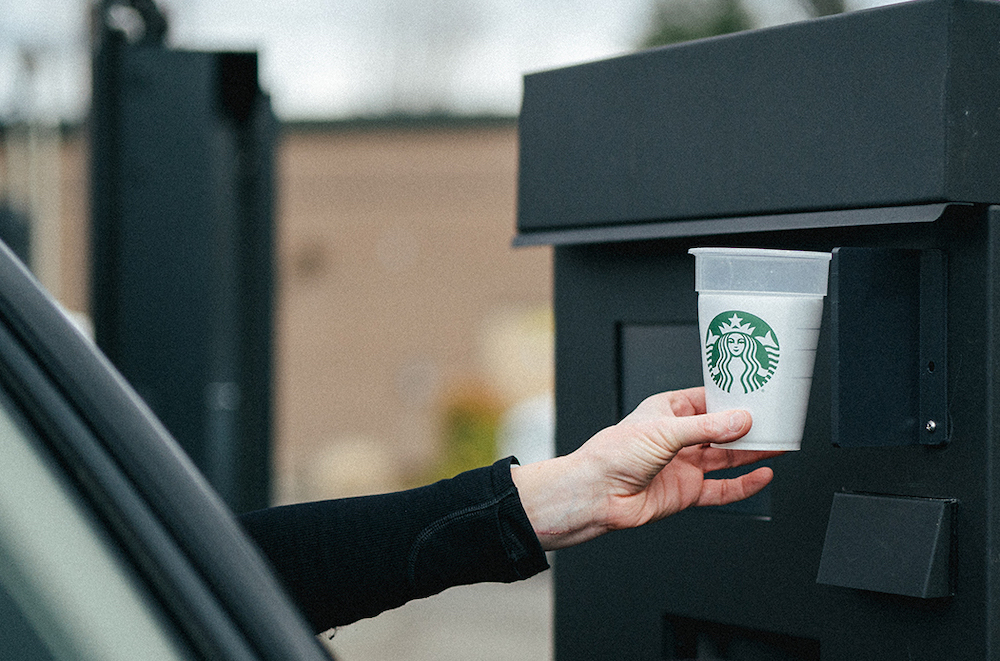
McDonald's and Starbucks trial reusable cup programs
McDonald's trialed a reusable cup program in the U.K. last summer, also in partnership with Loop. Customers at six restaurants could order their morning cuppa in a reusable mug for a deposit of one British pound, which they got back when they returned the cup, along with a discount on their next order.
Meanwhile, after two single-store tests in 2020, Starbucks expanded its Borrow A Cup program to five stores in Seattle from March through May of 2021, in partnership with a Seattle-area service called Ridwell. Like the McDonald's program, Starbucks customers simply pay a $1 deposit to order with a reusable cup, and they'll receive points for refunds through the chain's rewards program when they bring it back.
Both companies say they're looking to learn from the pilots as they seek to expand reuse programs to more locations in pursuit of a more circular economy for their products and packaging.
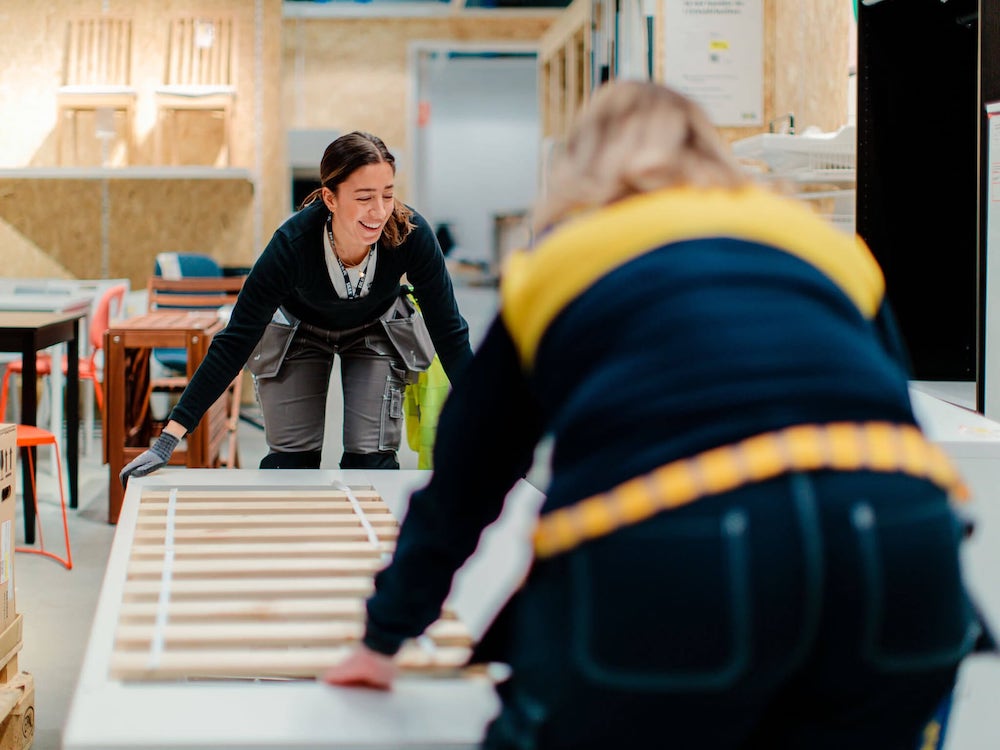
Ikea scales furniture buyback and resale program across the U.S.
Ikea's large-scale furniture buyback program was a smash hit when it launched in 27 countries in 2020, including Germany, Australia, Canada and Japan. In 2021, U.S. consumers got their chance to take part.
After piloting the program in Conshohocken, Pennsylvania, where the company says 100 percent of the items brought in were resold, Ikea rolled it out to all of its U.S. retail stores in November of last year. Mirroring the global program, U.S. customers can get store credit for their gently used, unmodified Ikea furniture that is resold in the stores' as-is section.
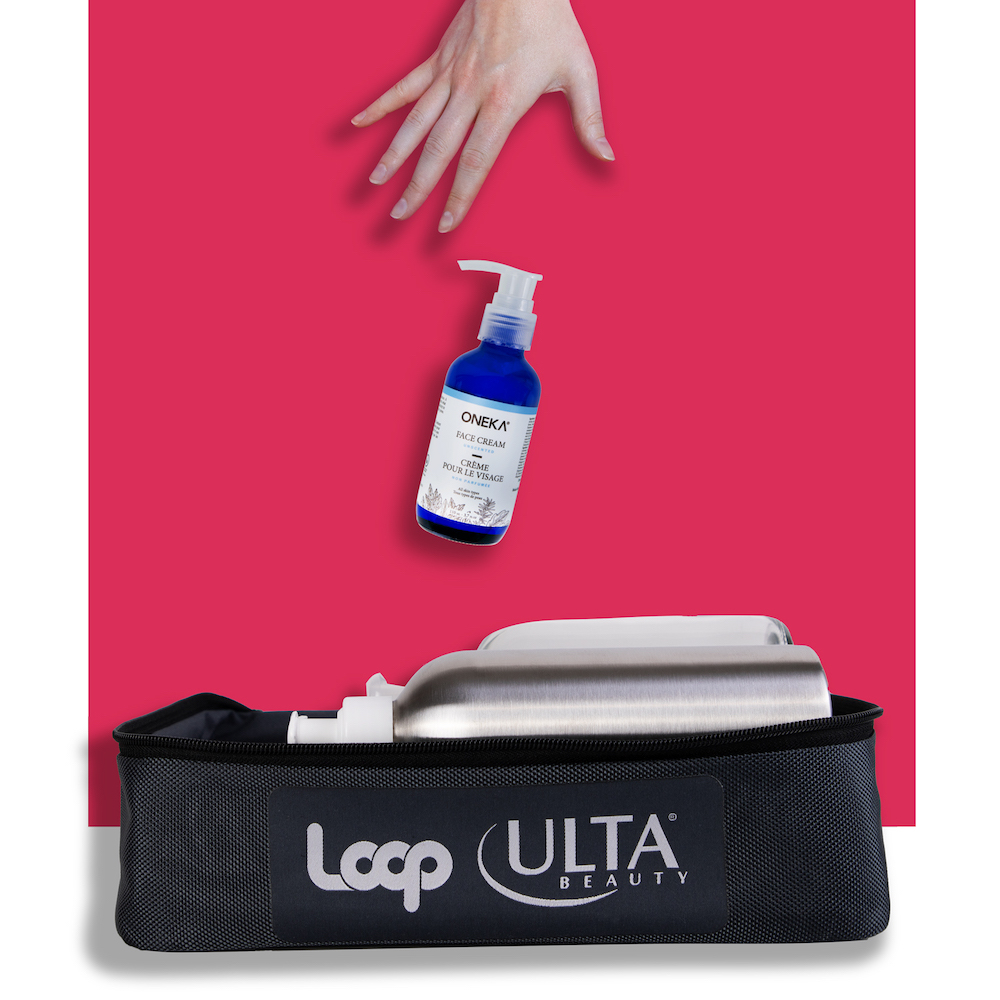
Ulta brings reusable beauty packaging to the masses
With more than 1,200 U.S. stores and over 30 million loyalty members, Ulta Beauty is one of the top mainstream retailers for cosmetics, skincare and haircare products. And in 2021, Ulta shoppers got a chance to try some of their favorites in reusable packaging, thanks to the retailer's partnership with (you guessed it) Loop.
Starting in March, the Loop x Ulta Beauty online store was regularly updated with new products, with participating brands including Burt's Bees, Mad Hippie, Melanin Essentials and Oneka. Customers from all 48 contiguous U.S. states could have their choices delivered in reusable packaging and send them back to be refilled.
The pilot wrapped at the end of November with no official word on the next step, but Ulta remains listed as a partner on Loop's website, so we'll likely see more from these two in the year ahead.
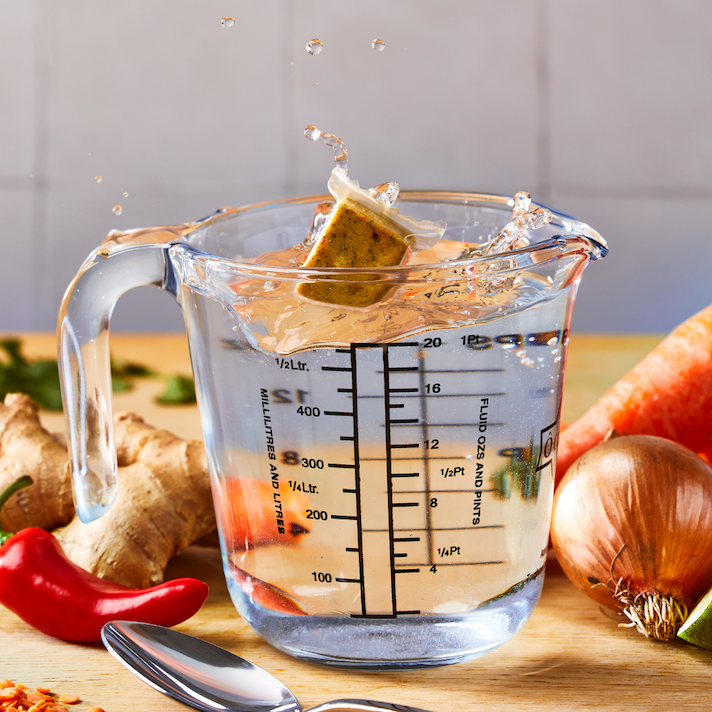
Leading U.K. meal kit company unveils dissolvable film made from pea protein
Perhaps even better than giving waste a second life, a big part of the circular economy of the future will be innovating to eliminate unnecessary waste altogether. This clever innovation from B Corp meal kit company Gousto is a case in point.
Billed as the "world’s first edible stock sachet," this innovative design co-created with the sustainable packaging experts at Xampla offers an alternative to those plastic packets around vegetable bouillon cubes. Rather than deal with wasteful and hard-to-open sachets (hello, wrap rage), simply drop these dissolvable, flavorless pea protein capsules in the pot and go on with the recipe.
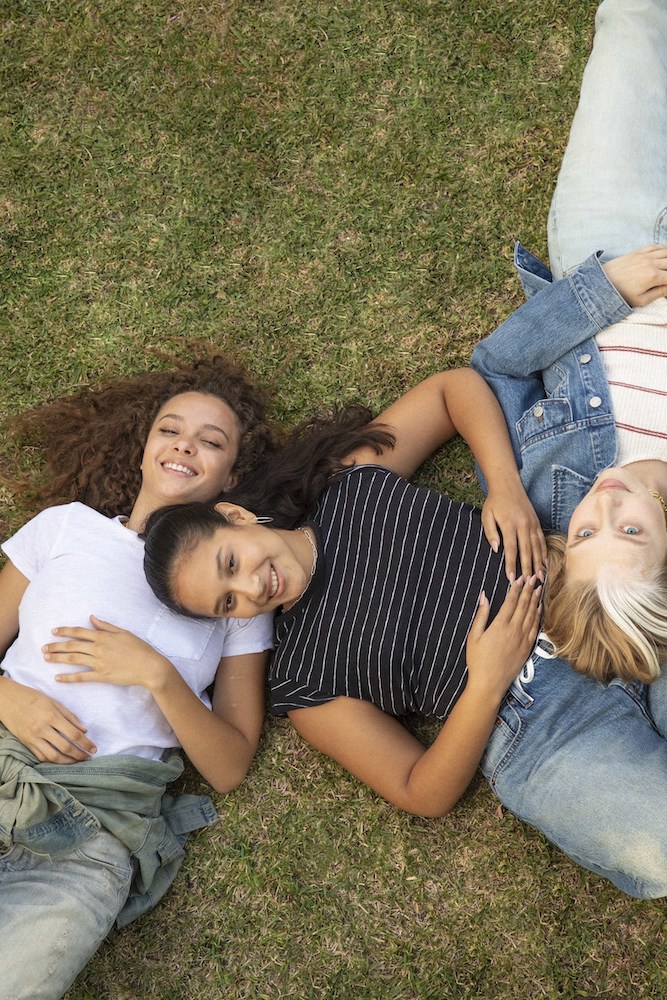
Madewell partners with ThredUP to expand denim trade-in and recycling program
Casual brand Madewell has long offered $20 vouchers to customers who recycle their gently-used jeans in store. In 2021, it took the next step toward building a circular economy for denim by partnering with the digital resale shop ThredUP to sell more secondhand Madewell apparel online.
The Madewell Forever secondhand shop launched in July with Madewell apparel donated online through ThredUP as well as denim that is collected at Madewell retail stores. The company says giving denim a second life reduces its environmental footprint by up to 82 percent, and it's out to collect 1 million pairs of denim by 2023.

The North Face eyes the circular economy for "top materials" by 2025
To mark Earth Day in 2021, beloved outdoor brand the North Face upped the ante on the circular economy with a pledge to use recycled, regenerative or renewable sources for 100 percent of its top materials by 2025. The company says it will use three core initiatives — its free repair program, its clothing recycling program Clothes the Loop and its re-commerce platform the North Face Renewed — to keep its products in use longer and source better materials in pursuit of circularity. The brand plans to release its first fully circular apparel line later this year.
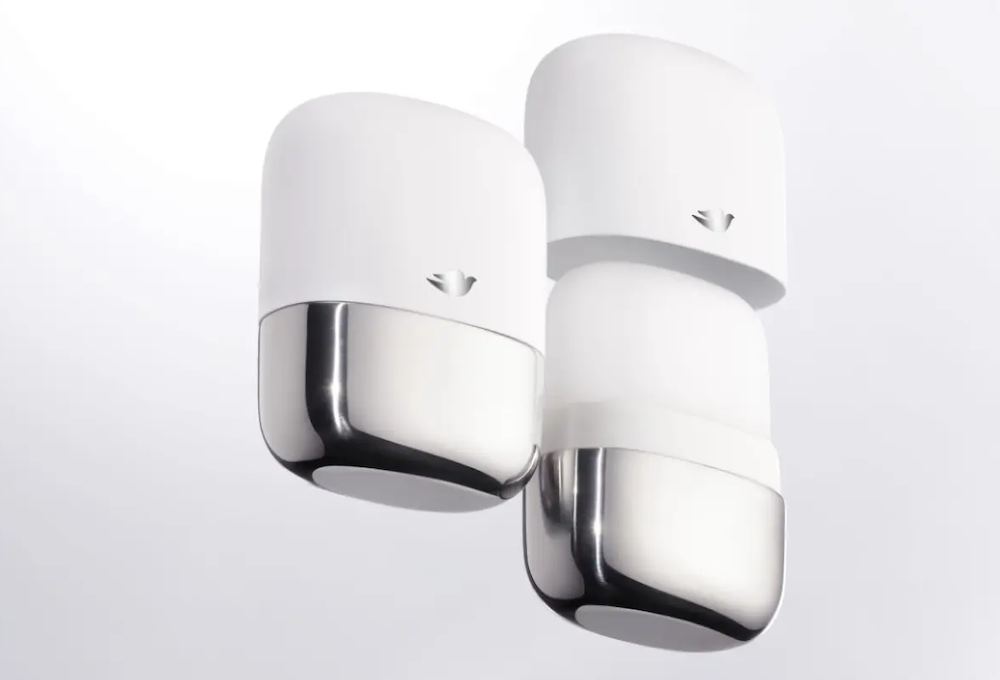
Dove is the latest Unilever brand to explore refillable packaging
In pursuit of a more circular economy for packaging, Unilever brand Dove has pledged to reduce or eliminate single-use plastic where possible and use recycled feedstock for plastic material it can't avoid. Various Unilever brands have also dappled in refillable packaging in recent years, including a partnership with the Loop platform and in-store refill trials in Europe.
At the start of 2021, Dove became the most recent brand to jump on board with a refillable stainless-steel deodorant pack that's both attractive and functional. Dove says the refillable option is only one of 100 projects it's working on to eliminate non-recycled, single-use plastic across all products.
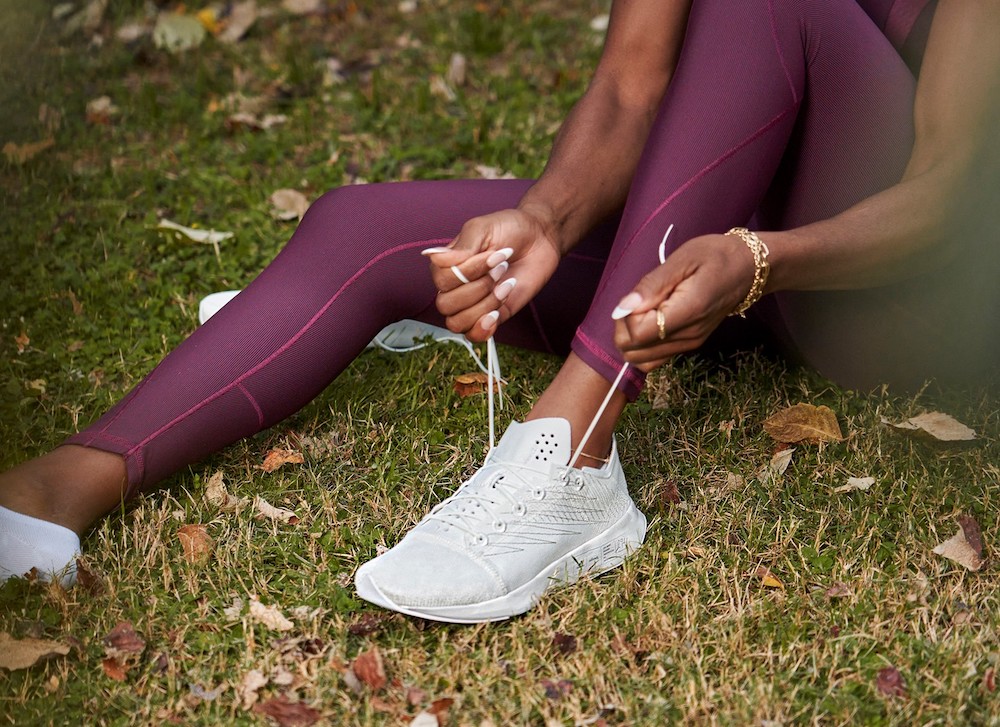
Adidas and Allbirds collaborate on a low-carbon sneaker featuring recycled materials, with other footwear brands bringing their own ideas to the playing field
Veteran footwear brand Adidas and sustainable upstart Allbirds made waves across the apparel industry in 2021 when they decided to team up to create a low-carbon performance shoe. Less than eight months later, the Futurecraft.Footprint shoe was ready for market.
Each pair creates less than 6.5 pounds of carbon dioxide equivalent emissions, compared to about 30 pounds for the average running shoe, and circular economy concepts have a lot to do with that. Designers considered pattern and manufacturing efficiency to reduce waste during assembly and sourced biodegradable and recycled materials associated with a lower carbon footprint.
Among the other footwear and circular economy developments in 2021: Nike revamped popular styles like the Blazer Mid, Air VaporMax and Free Run 5.0 with recycled materials, while luxury label Roscomar looked to plant-based and renewable materials in its most sustainable shoe to date.
Featured image courtesy of Gousto Recipe Box
10+ Brands That Embraced the Circular Economy in 2021 - Triple Pundit
Read More
No comments:
Post a Comment